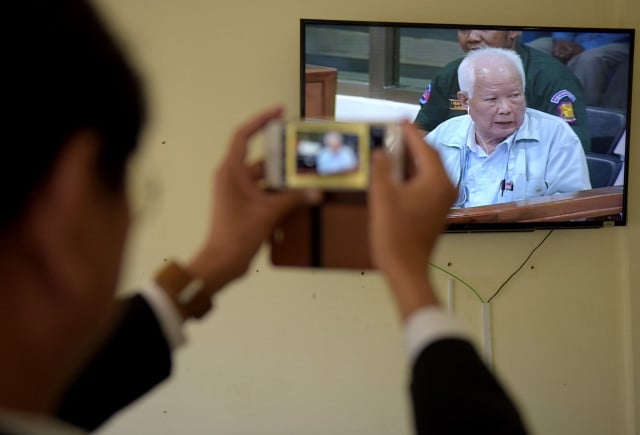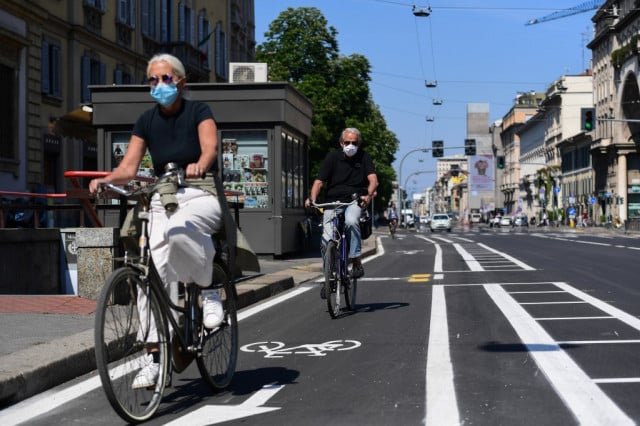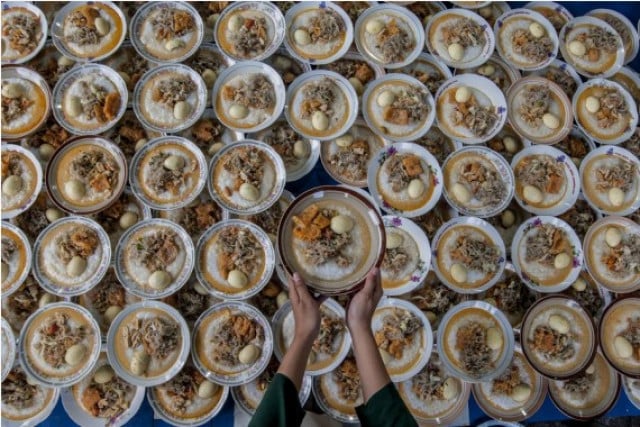$337 Million: The Cost of Khmer Rouge Justice

- By Meng Seavmey
- September 21, 2022 7:29 PM
PHNOM PENH – The Khmer Rouge tribunal, which announces its final verdict on Sept. 22, has cost about $337 million over 16 years. Of the total, $45 million was from Cambodia with the rest paid for by 39 foreign countries.
Japan contributed most, at $88 million, to the hybrid court formally called the Extraordinary Chambers in the Courts of Cambodia (ECCC).
Since 2006, the ECCC has been hearing cases against senior leaders of the Khmer Rouge regime.
Youk Chhang, executive director of the Documentation Center of Cambodia (DC-Cam), said the ECCC’s work, supported by UN signatory countries, has been impressive in seeking justice even though few criminals were sentenced.
“From a study we worked on involving more than 30,000 Khmer Rouge survivors, we can say that they think that these cases are very important not only for Cambodia but for the cases of genocides all over the world,” he said.
The documented cases and history would be for the next generation to understand their country’s history when the survivors can no longer tell their stories.
Houn Sokmanead, a senior student majoring in public administration, went to watch the trial of Nuon Chea and Khieu Samphan (case 002/01) as a member of public. The atmosphere in the courtroom was silent, yet loud for the survivors.
“The survivors started crying while trying to tell the court what they went through, expressing their pain of losing their families and relatives,” Sokmanead said.
The survivors' feeling of unfairness was strong because the Cambodian constitution does not allow the death sentence. They were not pleased with the judgement.
They wanted to punish the criminals the same way those people had done to millions of innocent Cambodians who died during the Khmer Rouge regime but could only force themselves to accept life imprisonment.
Nevertheless, Sokmanead said that if life imprisonment is the harshest punishment, then the criminals deserve it.
The tribunal has ended its investigation in Case 001 against Kaing Guek Eav (known as Duch), who was the former commander of a notorious Khmer Rouge prison. Kaing Guek Eav has died. Proceedings have also ended in Case 003 against Meas Mut, a former Khmer Rouge cadre, and Case 004 against three defendants including cadres Yim Tith, Im Chaem (004/01), and Ao An, who is also dead, (004/02).
Like Case 004, Case 002 involved two defendants and two other co-accused, including Nuon Chea (dead), former chairman of the Democratic Kampuchea National Assembly and deputy secretary of the Communist Party of Kampuchea, Khieu Samphan, former head of state of Democratic Kampuchea, Ieng Sary (dead), a former deputy prime minister and foreign affairs minister, and Ieng Thirith (dead), a former social affairs minister.
The Case 002/01 judgement was pronounced in 2014 with Nuon Chea and Khieu Samphan being found guilty. Case 002/02 was brought against the two defendants arising from the closing order in Case 002.
The ECCC chose Sept. 22 as the date for the last hearing of Case 002/02 and the end of the case, said ECCC spokesperson Neth Pheaktra.















